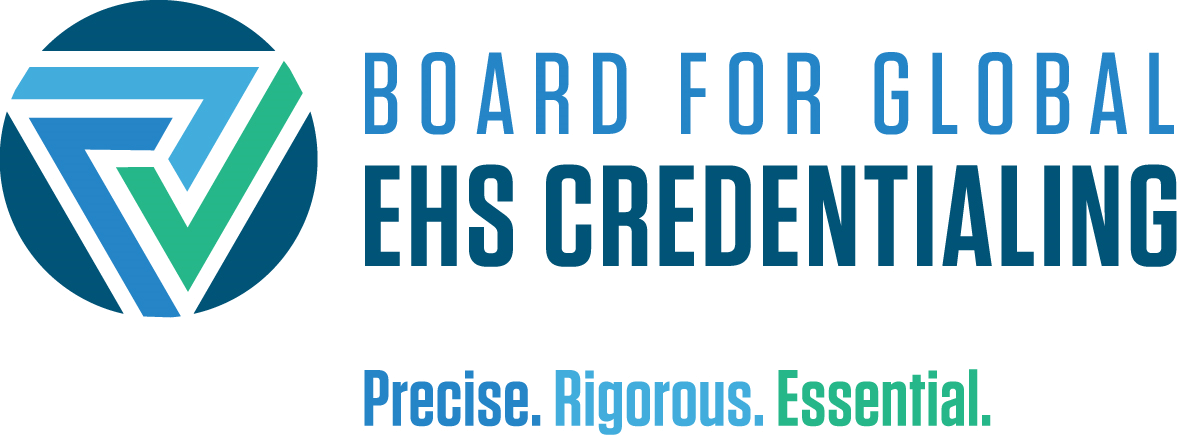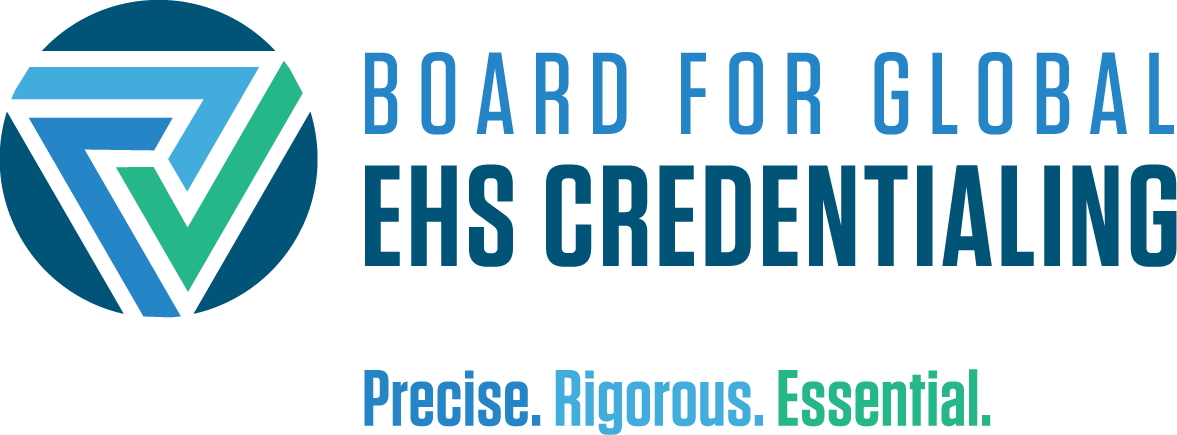
CERTIFIED
What is the Certified Professional Environmental Auditor (CPEA) Credential?
How Do I Become a CPEA?
The Certified Professional Environmental Auditor (CPEA) credential demonstrates one’s practice of today’s ever-changing EHS regulations and related auditing procedures, processes, and techniques. BGC will only grant the CPEA to practitioners who achieve the requirements for education and experience, agree to abide by, and through examination, demonstrate both general auditing knowledge by passing an exam of general auditing practice and professional-level knowledge and skills by passing multiple-choice and essay exams in one of four specialty areas:
- Environmental Compliance
- Health and Safety
- Management Systems
BGC places no restrictions or qualifications on the career paths of a CPEA as long as the person meets the ongoing requirements in the certification maintenance program and adheres to the professional, enforceable BGC Code of Ethics. CPEAs also qualify for Professional Membership status with the American Society of Safety Engineers (ASSE). The CPEA credentialing program is fully accredited by the Council on Engineering and Scientific Specialty Boards (CESB).
If you are interested in becoming certified as a CPEA, you must meet eight requirements:
- Have a bachelor’s degree from a regionally accredited college or university or from another college that is acceptable to the Board.
- Provide evidence of at least 40 hours of training in your specialty area within the last three years.
- Document four years of work experience in one or more of the four specialties.
- You must currently be engaged in active EHS auditing practice at the time of application.
- Be supported by a minimum of two character references from a responsible person such as a supervisor or a manager who has known you for at least two years.
- You must pass the three-part CPEA exam.
- You must agree to adhere to the BGC Code of Ethics and to be governed by the BGC Ethics Case Procedures.
- Pay fees on or before the due date.
For more information on the specific details of becoming a CPEA, read the CPEA Candidate handbook pages.
Testimonials
What our CERTIFICANTS say
People who hold an EHS auditing certification often say that their credential allows them to demonstrate their qualifications, technical knowledge, training, professional experience, and proficiency for achieving their career goals:
 When I came to the U.S. as a young immigrant, I worked for many years as a landscaper mowing lawns, planting shrubs, cleaning up leaves, and plowing snow. While working fulltime, I studied at night for my Associate of Landscape Design and later for my Bachelor of Science in Business Administration. This endeavor led to better job opportunities. Finally, after 10 years as a night student, I completed my GMAT/GRE exams and was accepted to Yale University School of the Environment where I successfully completed a Master of Environmental Management Graduate Degree program (2006 to 2008).
When I came to the U.S. as a young immigrant, I worked for many years as a landscaper mowing lawns, planting shrubs, cleaning up leaves, and plowing snow. While working fulltime, I studied at night for my Associate of Landscape Design and later for my Bachelor of Science in Business Administration. This endeavor led to better job opportunities. Finally, after 10 years as a night student, I completed my GMAT/GRE exams and was accepted to Yale University School of the Environment where I successfully completed a Master of Environmental Management Graduate Degree program (2006 to 2008).
Upon graduation, the global financial crisis hit, and I struggled to find meaningful career opportunities. That lack of opportunity forced me toward the world of auditing where I began working parttime as an auditor in training doing International Standards Organization (ISO) Environmental Management System (EMS) audits at manufacturing facilities all over North America. Over time, I became an ISO Certified Lead auditor conducting ISO 14001 EMS and IS0 9001 Quality QMS systems audits with Intertek, a global Audit and Assurance registrar company.
This hardcore, on the ground experience provided me with the experience and qualifications to go on and join National Grid as a Corporate EHS lead auditor in 2016. After 5 years of conducting onsite and office-based EHS audits at the corporate level, I moved into compliance assurance where I currently work as a Lead Compliance Assurance Analyst with different business units within National Grid helping them to develop and improve their operational controls so they can achieve compliance with regulatory obligations. I have not yet identified what the next step in my career will be. However, I have developed very strong stakeholder, analysis, and project management skills in the process. I am excited by the hard work I have put in to get to where I am currently and, God willing, I will be fortunate enough to realize more success in the future.
I was motivated to apply for the CPEA because I needed a credential that clearly recognized my EHS auditor status/profession. At National Grid, I was part of a Corporate EHS audit team which operated under the wing of IT, Finance, and General Management system audit. All the auditors I knew were certified through the Institute of Internal Auditors (IIA). However, there was no credential within IIA to certify EHS auditors. Consequently, I found out about CPEA and decided to become a certified CPEA EHS auditor. The CPEA brings value to me as a practitioner because it adds validity of the auditing profession generally and, more specifically, it demonstrates that EHS auditing belongs in a legitimate global professional category of its own. I would recommend the CPEA to someone because I am a firm believer in the value and integrity of adding credentials earned through your own endeavor to a resume. That is what I have always done throughout my work life and later as an integral part of a professional career. I have amassed several credentials this way and when a professional does this consistently through their career, it becomes something that people have to acknowledge and respect about that individual. It also makes one a better professional and a better person in the long run. More importantly, it should always be the bedrock as to how professional capabilities are assessed.
 I fell in love with auditing because it was a continuous learning opportunity. New people, new places, new industries. And I get excited every time I go…even if I have been there before. Completing the training and gaining the experience to earn my CPEA helped build confidence and drove me to be a better, more thorough auditor. And hopefully a better teacher.
I fell in love with auditing because it was a continuous learning opportunity. New people, new places, new industries. And I get excited every time I go…even if I have been there before. Completing the training and gaining the experience to earn my CPEA helped build confidence and drove me to be a better, more thorough auditor. And hopefully a better teacher.
 I am the founder and president of Qualified Specialists LLC (QSI), an organization that has been serving the oil and gas industry for more than 32 years. For more than 40 years, I have had a unique blend of experience and have supported industry business sectors such as oil and gas operators, equipment manufacturers, drilling operations, field services, and supply chains. I have traveled to over 30 countries and have performed accreditation audits of certified bodies for the Center for Offshore Safety both on and offshore. QSI is an advocate and promotes individual certification through all that we do. QSI’s professional services include management system software development and hosting, consulting, auditing, and training. I chose the Certified Professional Environmental Auditor (CPEA) to round out my background to perform integrated audits of quality, health, safety, and environmental management systems. My long-term CPEA certification has afforded QSI and its customers a consistency of purpose, a higher understanding of management systems, service integrity, and a provocative approach, all of which lead to customer business improvement.
I am the founder and president of Qualified Specialists LLC (QSI), an organization that has been serving the oil and gas industry for more than 32 years. For more than 40 years, I have had a unique blend of experience and have supported industry business sectors such as oil and gas operators, equipment manufacturers, drilling operations, field services, and supply chains. I have traveled to over 30 countries and have performed accreditation audits of certified bodies for the Center for Offshore Safety both on and offshore. QSI is an advocate and promotes individual certification through all that we do. QSI’s professional services include management system software development and hosting, consulting, auditing, and training. I chose the Certified Professional Environmental Auditor (CPEA) to round out my background to perform integrated audits of quality, health, safety, and environmental management systems. My long-term CPEA certification has afforded QSI and its customers a consistency of purpose, a higher understanding of management systems, service integrity, and a provocative approach, all of which lead to customer business improvement.





